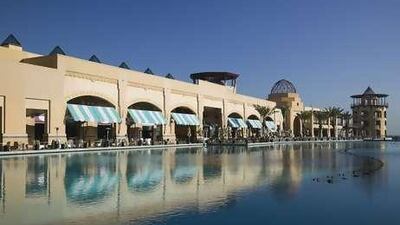The inflation rate in Bahrain and Kuwait steadied in the last two months, estimates released yesterday showed, but analysts cautioned that the latest dip was unlikely to become a sustained downwards trend. Bahrain reported the annual inflation rate last month was 3.1 per cent, down from 6.2 per cent the month before, the same day that the Kuwaiti government said the annual inflation rate had fallen to 11.1 per cent in May, down from 11.4 per cent in April.
"Increases in food and commodity prices have slowed down now," Paul Gamble, head of research at Jadwa Investment, told Reuters. "But the worst isn't over. It's going to take a number of years for it to go down significantly." The Central Informatics Organisation (CIO), the Bahraini government's statistical agency, said inflation was led by an increase in the price of building materials. "The housing, water, electricity, gas and other fuels group has seen a rise in prices due to the rising price of [building] material prices," the CIO said.
Inflation in the region has been fed by a combination of rapid economic expansion, rising commodity prices and links between GCC currencies and the dollar, which have forced governments to reduce interest rates in line with the US central bank at a time when conventional economic wisdom suggests raising them. The rate of price increases in Bahrain has been the lowest in the region, partly because its economy, which is not tied as directly to record oil and gas revenues, has not expanded as rapidly as its neighbours, said Monica Malik, an economist at EFG Hermes.
"They just haven't had the same degree of fiscal spending and same level of growth as the other countries," she said. The CIO said annual inflation stood at 6.2 per cent in May and April. The drop last month does not necessarily indicate a trend, as it could reflect unusually high gains in June of last year or an increase in price volatility that often accompanies higher inflation, analysts said. Economists usually rely on several months of data to offer estimates of inflation for the year in total.
Analysts have forecast consumer prices in Bahrain to grow by nine per cent this year overall, compared to 3.3 per cent last year. In response to rising prices, the Bahraini government said last month it would spend US$1.3 billion (Dh4.7bn) a year on subsidies for food and fuel to offset the impact of inflation on its population. Bahrain's central bank also raised the reserve requirement for banks by two percentage points to seven per cent in January to prevent lower borrowing costs from stoking inflation further. The reserve requirement is the proportion of deposits that banks cannot lend out to their customers, and this tends to reduce the amount of cash in an economy.
Ms Malik, however, said increased reserve requirements were unlikely to reduce liquidity markedly, since banks in the region tended to have unusually large deposit bases to loan from. "That still means the bank can continue to lend at a very high level," she said. In Kuwait, inflation eased slightly to 11.08 per cent in May from 11.4 per cent in April, driven by slower price rises for food and housing, government data showed. Inflation was 10.22 per cent in March.
In a bid to slow the rate of imported inflation, Kuwait dropped the peg to the dollar last year and linked the dinar to a basket of currencies, including the dollar. In March, the central bank tightened bank curbs on consumer lenders to control credit growth. Many analysts have said the persistently high rate of inflation in the country is evidence that links to the dollar across the region are not the main causes of price increases.
"Kuwait has been slow to join the trend of aggressively expanding economies, but it is catching up," said Fabio Scacciavillani, the director or macroeconomics and statistics at the Dubai International Financial Centre. "The upgrading of the economy requires an upgrading of everything, and until you upgrade you will have bottlenecks, and bottlenecks lead to a rise in prices." Mr Scacciavillani noted that one key driver of inflation - food prices - had eased, which could reduce inflationary pressures across the region by the year's end.
In the UAE, although the Government has not offered estimates for the inflation rate this year, the minister of economy, Sultan bin Saeed al Mansouri, has said it would be a "miracle" if inflation were held to five per cent or less. The Government estimated the inflation rate was 11.1 per cent last year. * with Reuters @Email:cstanton@thenational.ae

